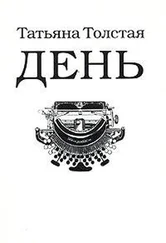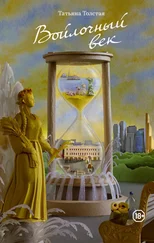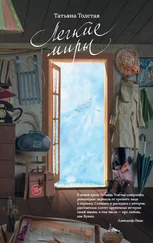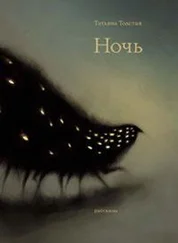§
Many, many moons ago—twenty-five, to be precise—I first came to Crete and lived on the outskirts of the town of Rethymno. Back then, Rethymno was small, its border right by the old university. Past there were ditches and gullies, the rattling of a backhoe digging the foundations of future buildings, which now stretch out for fifteen kilometers from that very spot.
Basically, everything was still fresh, young, and untouched. The roads on Crete were impassable; some were simply dirt roads, and I enjoyed taking off my sandals and walking on the cooling evening dust that felt like flour. Nowadays, asphalt is everywhere and it’s easy to drive places, but not just for me—and that’s the problem. These disgustingly convenient highways were built straight through magnificent and mysterious mountains full of birds and trees; there are no more trees and no more birds there, only heaps of red stone in the whistling wind.
So there I was, on the Island of Crete for the first time, sitting at a restaurant in the harbor, right on the water, people watching. The restaurants there were crap—tourist traps with frozen fish and jacked-up prices—but there was one authentic spot, low-key and right under your nose. Everything was homemade and done right, the giveaway being that Greeks ate there. The tablecloths were blue gingham, and you could crumble bread straight into the sea to feed the fish without leaving your table as the sun shone down.
About ten feet away from me, in one of the tourist traps, there was a Swedish woman—around thirty-five, orange hair brushed straight up, T-shirt with no bra the way they like it in Scandinavia—surrounded by three Vikings of enviable height and heroic good looks: rosy cheeks, golden locks, and piercing blue eyes. All four of them were three sheets to the wind, very jolly, most noticeably the woman, who was laughing loudly with her mouth open wide. You couldn’t miss her.
A quarter century passed and the Crete of yesterday, so inviting in its pristine remoteness, bucolic and patriarchal, had faded and surrendered to cement hotels and boardinghouses. Its distant outskirts, where summits once afforded mind-blowing vistas of sparkling seas and uninhabited shores, were now dotted with greenhouses and covered in abominable white film, all to grow tomatoes, say, for the visitors of those cheerfully painted cement hotels and boardinghouses.
And no longer did you feel like getting behind the wheel and driving farther, farther, farther, because in the distance, there, too, were asphalt and white film and convenience. The joy of these wild expanses that I got to experience was gone forever.
And so, twenty-five years on, I am once again sitting at a homey restaurant in the small harbor of Rethymno, my elbows resting on that blue-checkered tablecloth. Maria, the proprietress—now long in the tooth—is making her way toward me with my meal while I, as usual, deliberate the relative merits of driving drunk. But how can one not drink with dinner? And then from the table next to me comes this loud, drunken, mouth-wide-open laugh. I turn around—my God!
Thinning orange hair brushed straight up, peeling skin, T-shirt worn over a bra-less wrinkly body, leg in a cast sticking out like a bazooka, arm wrapped in some bandages—it’s that very same Swedish woman, now in a wheelchair! Surrounded by the very same three Vikings, now slouchy and ruddy-faced, the remnants of golden locks blowing in the wind, eyes faded almost to white.
All of them shit-faced, all of them laughing hysterically; one is plagued by a smoker’s cough, he’s waving his arm—“Enough!”—which only makes the rest howl louder with jolly boozy laughter, and she, that faded carrot-haired beauty, the loudest and jolliest of them all.
And the sight of these invincible people filled my heart with awe and my eyes with tears.
§
The blood feuds here are like those of Sardinia. You visit some tiny mountain village in the year 2000 and then, ten years later, you read in the latest travel guide: they all perished, killed in a standoff. Toward the end of that standoff, the police came, surrounded the house where the shooter was hiding. They yelled into a megaphone: That’s it, Cousin Manolis, surrender! And he yelled back: This is none of your business, let me just shoot the last one and I’ll come out myself. How do you not respect that? They are all related down here.
We know one such family. About fifteen years ago we used to frequent a taverna run by Yorgos, a young man of uncommon good looks. If you’ve ever seen those preclassical kouros sculptures—that’s Yorgos: tall, heavy hipped, with an inscrutable Mona Lisa smile that isn’t really a smile but a natural crease of the mouth, for Yorgos was never amused. His eyes were also preclassical, Mycenaean, wrapping around his face like a pair of sunglasses and aiming somewhere behind his ears; their color was pale grape, perfect for staring blankly into the distance.
He was the son of the proprietor of the taverna, as I say, and as it was customary here, the entire family—all ten—toiled away during the high season from dusk till midnight: they bought, they brought, they peeled, they chopped, they served, they cleared. And everything was cooked by one immortal granny; well, there were two dark-haired short ladies helping in the 100+ degree kitchen, but the chef was Granny, all in black and shaped like a question mark. She’s still toiling away there, fifteen years later.
So here is Yorgos, balancing on one tanned arm six oval plates of seafood and potatoes, the wine and six glasses held in his other tanned arm—the sun is setting, everything is bathed in golden light. The Germans already had ordered their Schweinekotelett and Mythos beer. Paradise. With his pale eyes, Yorgos is looking out over the German heads and ours—always above the tourists’ heads—his eyes glancing over the mountains, the rooftops, the balconies and treetops.
“Sit with us, Yorgos, have a drink!” we say; we have known him for a long time. Or we think we know him.
Yorgos sits.
“The world is full of evil,” says he.
“Sure, that’s true,” we respond lightheartedly. “But the weather is delightful.”
And then it all comes pouring out. Yorgos is first in line; someday a bullet will come for him. Or not. It might be a knife. They are from a mountain village about twenty miles from here up a small green road. (We’ve driven past it, by the way, there was nothing sinister. A mini-mart, ice cream kiosks, gas station.) But in the nineteenth century, somebody stole somebody’s sheep. The victim’s honor was insulted: A sheep? Rustled from me? And so he stole two back. The initial offender was outraged in turn. Soon somebody’s second cousin once removed was, well, removed. So it was necessary to retaliate by killing that clan’s next in line, a daydreaming sixteen-year-old boy: you snooze, you lose. And so it went. Yorgos’s family ran away from the village to the shore, a little safer there, no one is going to just start shooting in a crowd full of tourists, that’s not manly, completely out of the question, the most important thing here is honor! But when the crowds have dissipated, then maybe.
Yorgos wanted to major in architecture and got into some European university. But his father yanked him away from his studies come peak season: You need to work, there are hordes of tourists coming. You can go back in the fall. Father spoke, son obeyed: from April till the end of October, Yorgos carried, stacked on his beautiful tanned arms, platters of tourist feed. “My heart’s in the Highlands, wherever I go.” They have a good restaurant. It was the best in the area. Year after year, the money flowed.
By November, visions of architecture fade: you close your eyes and Schweinekotelett is all you see. No impetus even to try. So he makes his way to Switzerland, to Germany where he spends lavishly, skis, frequents casinos. They could kill him there, too, of course, and there is no knowing who the killer might be.
Читать дальше






